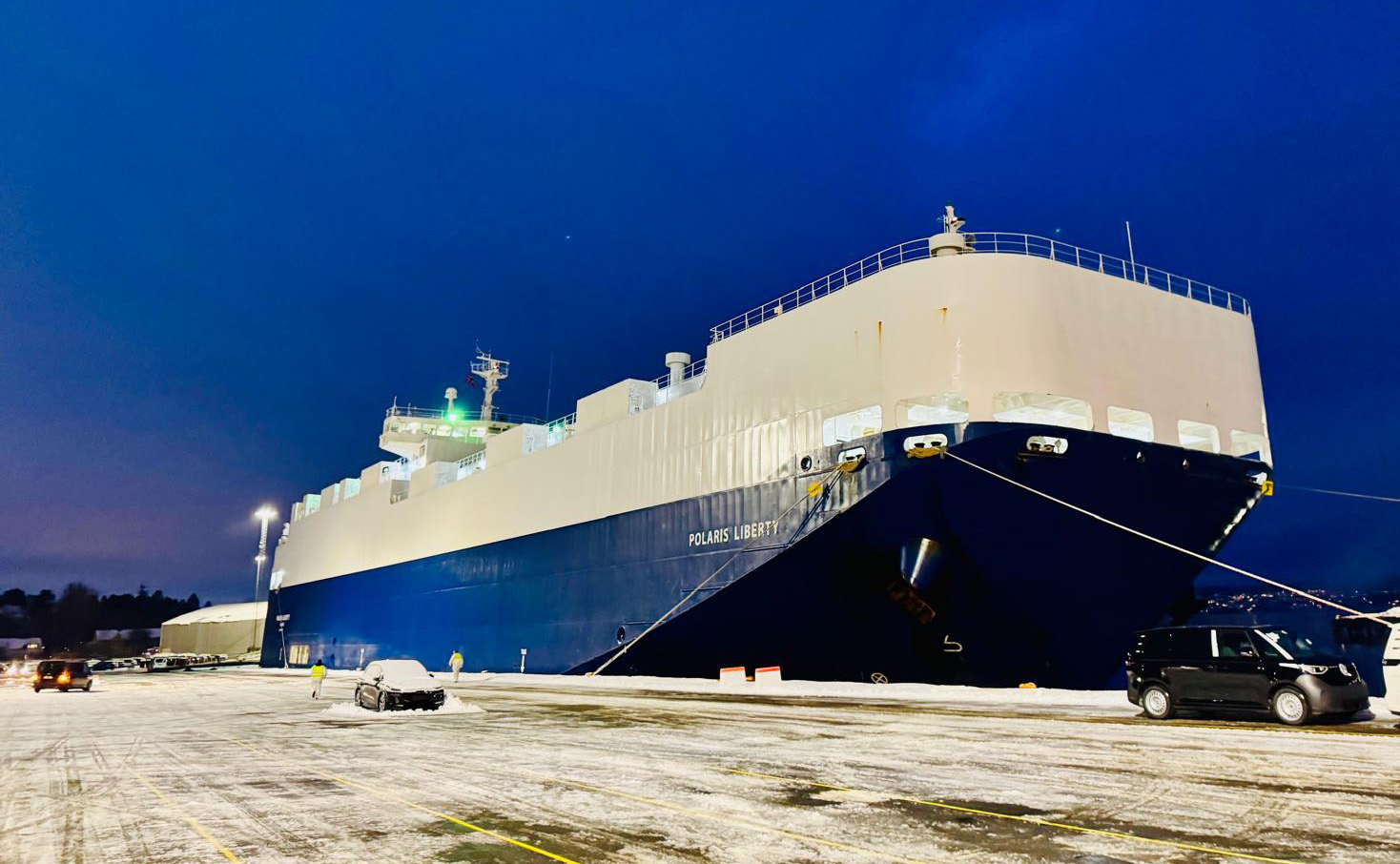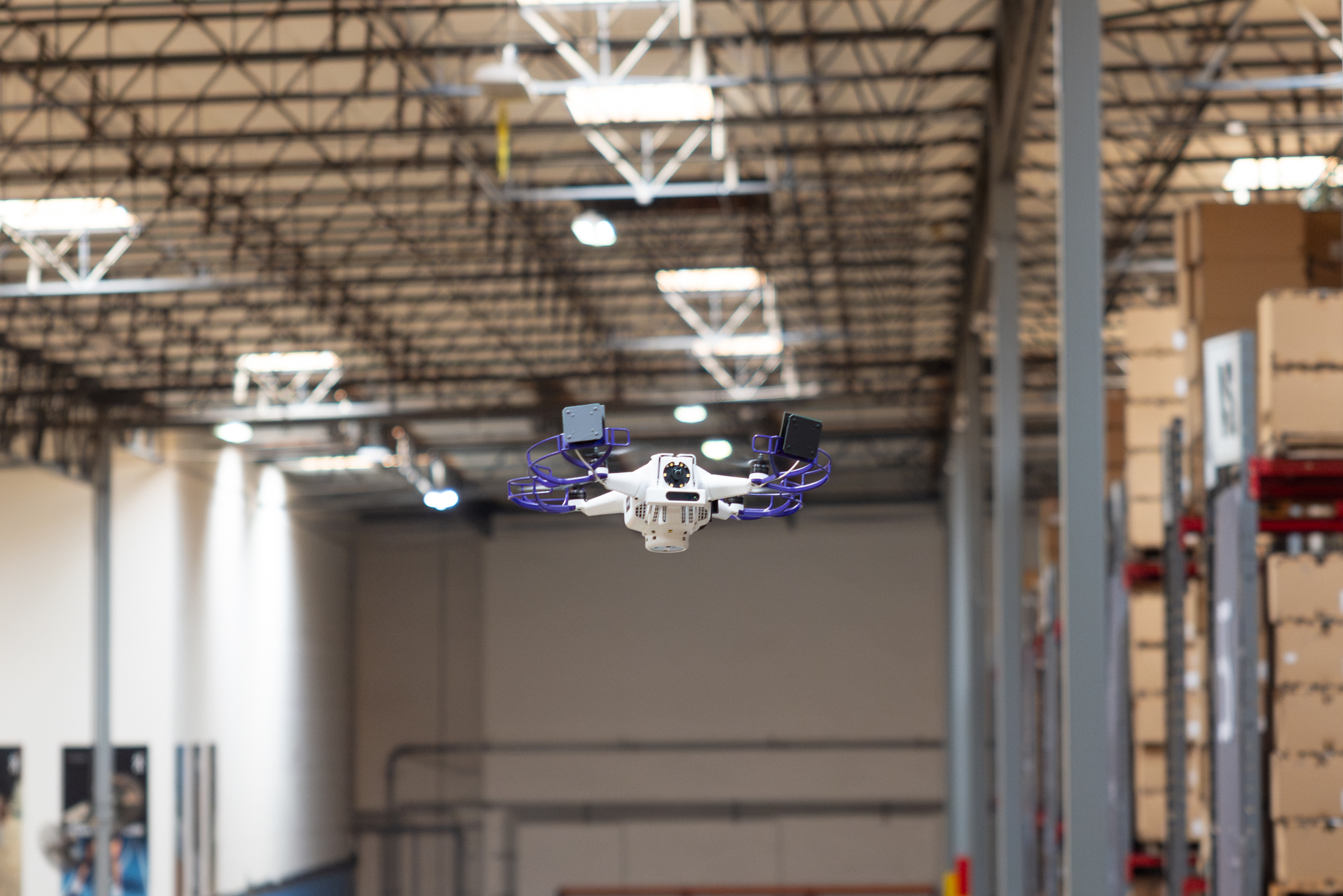LogiMAT 2025 will take place at the Messe Stuttgart convention center from March 11–13, 2025. In Hall 3 at booth 3B67, Movu Robotics, member of the stow Group, will demonstrate its leadership in accessible and advanced warehouse automation. The showcase will highlight how Compact Scalability – an intelligent and adaptable concept for automated logistics systems – is redefining flexibility and efficiency in modern warehousing.
Movu Compact Scalabilty is a groundbreaking approach that seamlessly combines innovative robotics, intelligent software and state-of-the-art hardware to redefine how businesses meet their fulfillment demands. Movu’s scalable solutions maximize storage capacity within the same footprint while adapting effortlessly to the customer’s needs – vertically, horizontally, and with seamless integration. This scalability offers a key advantage, enabling businesses to expand their storage and throughput capabilities without requiring major overhauls to their existing infrastructure. Movu Compact Scalability empowers businesses to grow smarter, faster, and more efficiently.
Presented in Stuttgart, the Movu atlas ASRS is designed with modularity for flexible expansion. It can be added or removed on demand fluctuations, peak seasons, or business growth. The pallet shuttle system allows for incremental investments rather than a large upfront overhaul, making it cost-effective and highly efficient. As demand grows, the system can scale horizontally by additional aisles and lanes that can be seamlessly added.
Able to operate in temperatures between -25°C and 40°C, Movu atlas provides a solution for both ambient and cold store warehouses. It brings unmatched experience and expertise as the industry’s leading 2D shuttle provider. In the recent years, Movu successfully installed a huge number of shuttles in over 100 projects from all industries in Europe and North America. By adding an integrated Lift, the Movu atlas system transitions into a dynamic 3D storage environment and scales vertically ensuring compact scalability. As a result, throughput is boosted and valuable floor space is saved with high-speed lifts up to 2.5 m/s achieving faster replenishment cycle times and order fulfilment.
At LogiMAT 2025, Movu showcases, how the Movu atlas system with integrated Lift can be further expanded by the integration of a Picking Tunnel. The highly efficient and space-optimized pathway will be integrated into the ground level of a Movu atlas ASRS to facilitate streamlined order picking. Designed specifically for high-density pallet storage and retrieval, the tunnel enables seamless interaction between automated shuttles, vertical lifts and manual or robotic picking processes with autonomous mobile robots, such as Movu ifollow. The intelligent and versatile AMR operates autonomously, navigating without the need for any external infrastructure. Advanced sensors and mapping technologies allow the robot to adapt seamlessly to its environment. Equipped with cutting-edge obstacle detection and navigation systems and available in several models, supporting loads from 300 kg to 1.2 tons, ifollow can be tailored to meet specific operational requirement and operating in temperatures from -25°C to +40°C.
At the show, Movu also presents Movu escala, an all-in-one, rack-and-robot storage and retrieval system to handle totes. It maximises warehouse resilience by leveraging modular applications for unparalleled adaptability. Automatically moving up, down and within storage locations, each shuttle reaches up to five units deep. No need for space-consuming conveyors, lifts or aisles; this high-speed, high-density system is one of the world’s most flexible 3D ASRS for bins. Integrating seamlessly with Movu escala for future proof automated order preparation at the picking workstation, a new version of Movu eligo picking robot is a state-of-the-art robotic solution designed for high-speed and highly efficient item picking operations. It can pick up to 1200 items per hour, reduce the number of manual ‘touches’ required for order fulfilment or replenishment and can reach a pick success rate greater than 99%. Equipped with advanced vision systems, AI-based algorithms and versatile handling tools, eligo is tailored for modern warehouses that demand precision, speed and adaptability in dynamic environments.
In Stuttgart, Movu will also feature Movu Overfill Detection, an intelligent, camera-based vision system designed to ensure the seamless operation of automated storage systems for bins like Movu escala. This innovative solution identifies items and bins that exceed storage boundaries, preventing overfilled bins from entering the system and ensuring safe, uninterrupted operations.
Live-demonstration of future-ready warehouses
Stefan Pieters, CTO at Movu Robotics, commented: “At LogiMAT 2025, we will showcase our vision of Compact Scalability in warehouse operations. We are excited to demonstrate how accessible automation and integrated solutions deliver significant scalability advantages, enabling businesses to respond swiftly to market demands and optimize costs through incremental system growth. With stow supplying dedicated racking for Movu’s atlas and escala, our booth will unite Peak Performance Racking with intelligent automation. Visitors will experience firsthand how customers benefit from a seamless, single point of communication provided by a ‘one-stop shop’ approach, designed to achieve high-performance warehousing.”
similar news
















